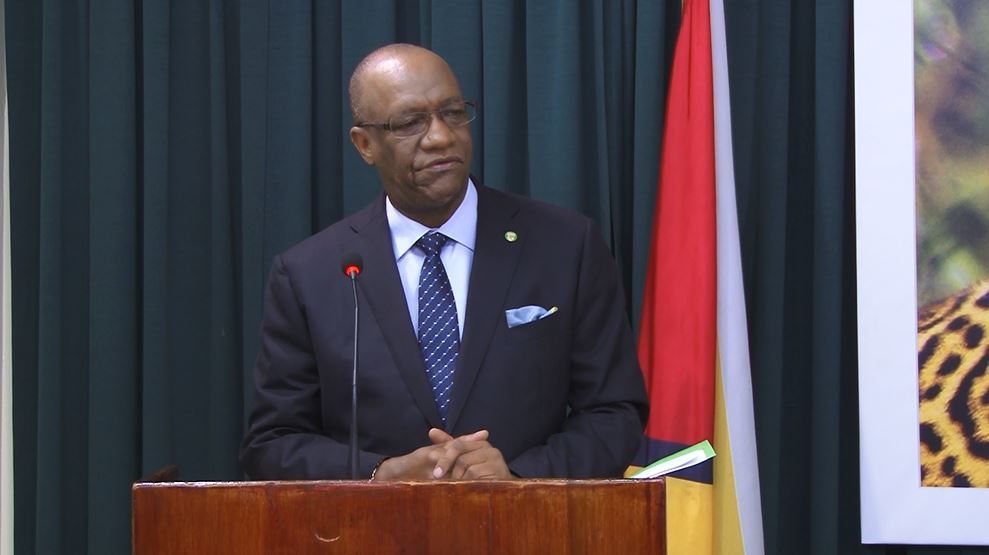Minister of State Joseph Harmon Friday declared that an “extended Cabinet” of “all” Government Ministers are meeting, making decisions, and “noting” the award of contracts.
Despite the meeting of the plenary of Ministers, Harmon said the “Cabinet” has not been meeting since the January 31 declaration by the Chief Justice that the Cabinet should have stopped functioning at the very moment the No Confidence motion was passed in the National Assembly on December 21.
Further, the meeting of the Ministers, Harmon declared, has all the powers of the Cabinet; the Cabinet is the Council of senior Ministers and the President which usually meets on a weekly basis.
“The plenaries are an extended Cabinet with all of the Ministers included,” Harmon declared.
He added: “Cabinet plenaries…are chaired by the President and include all the Ministers and therefore has all of the powers that the Cabinet…can have.”
He said that the “Cabinet” has not been convened because of the ruling of the Chief Justice.
“There is a judgment of the court that was made with respect to the Cabinet and that judgment is appealed, but we have not a stay of the judgment yet and therefore we have not held Cabinet meetings as such,” Harmon stated.
When questioned, Harmon could not state a specific law under which the plenary is meeting and performing all the functions of the normal Cabinet.
“It is under the law, it is under the constitution of Guyana.
“All Ministers are appointed by His Excellency the President who appoints them to assist him in the execution of various duties,” is all Harmon would say.
Pressed on the issue, he gave the same answer.
The meeting of the plenary of ministers has given the go-ahead for the award of several multi-million dollar contracts, but Harmon denied that this was so, insisting that the plenary was being informed that the contracts were awarded and making a “note” that this was done.
The Procurement Act of 2003 created the National Procurement and Tender Administration Board (NPTAB) where contracts are examined for award.
Usually, the Board determines the most suitable contractor, and this is sent to Cabinet for a “no objection.” Only if that “no objection” is granted a contract is awarded. But Harmon Friday denied that that is the process.
He stated: “The contracts are determined by the National Procurement and Tender Board Administration. They are usually sent for a ‘noting,’ that is to say, for the recognition that these contracts have been finalised, and have been issued.
“So, there is no question of a No Objection where those are concerned; it’s just a noting and that has always been the position with respect to that.”
However, Harmon himself in January 2017 declared that Cabinet had maintained this “no objection” role.
The Procurement Act of 2003 created the National Procurement and Tender Administration Board (NPTAB) where contracts are examined for award.
At a press conference he held on January 6, 2017, Harmon stated that “…the role of no objection continues to be exercised by Cabinet.”
On February 24, 2017, the Public Procurement Commission (PPPC), declared that “neither the Constitution nor the Procurement Act provides for the PPC to take over this function from the Cabinet.”












